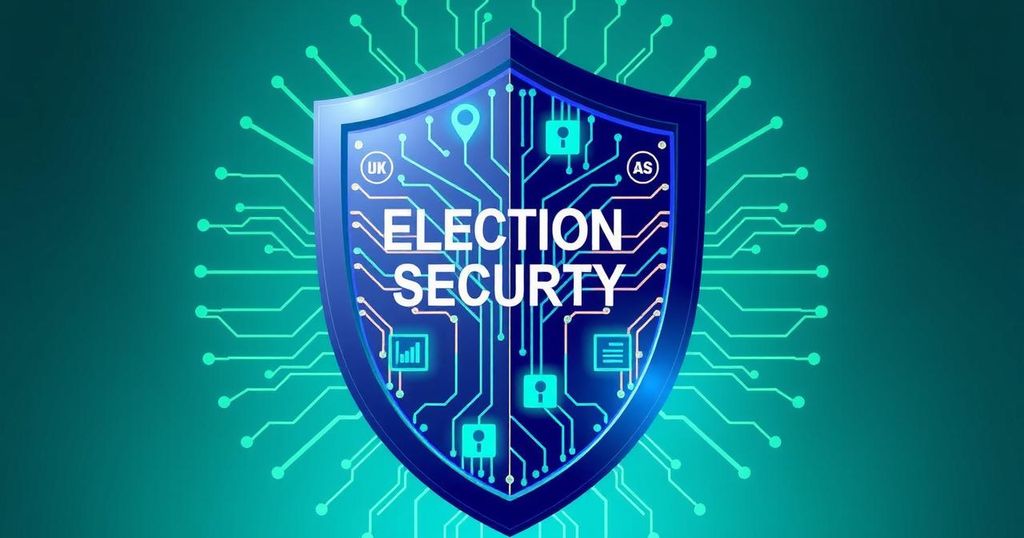World news
AFRICA, AL SCHMIDT, BURKINA FASO, CISA, DONALD TRUMP, ELECTION ASSISTANCE COMMISSION, GENERAL COUNCIL, HOUSE, JOSH SHA, JOSH SHAPIRO, KRIS, KRISTI NOEM, LEGISLATION, LEVITTOWNNOW, NATIONAL SECURITY, OFFICE OF GENERAL COUNCIL, PA, PENNSYLVANIA, PENNSYLVANIA DEPARTMENT OF STATE, PETER HALL, POLITICS, PRESIDENTIAL ELECTION 2024, SCHMIDT, SECRET SERVICE, SHAPIRO, STAR, TRUMP, U. S, U. S. CYBERSE, U. S. CYBERSECURITY AND INFRASTRUCTURE SECURITY AGENCY, U. S. HOMELAND SECURITY, U. S. HOUSE REPUBLICANS
Ethan Kim
0 Comments
Pennsylvania Reviews Election Security Amid Federal Changes
Pennsylvania officials, led by Secretary Al Schmidt, are reviewing former President Trump’s executive order on elections, which mandates proof of citizenship for voter registration. Concerns arise over cuts to election security resources from CISA, posing risks to electoral integrity. Schmidt highlighted the need for collaboration with CISA to address threats, especially amid rising disinformation campaigns from foreign actors. As skepticism persists regarding election security, Pennsylvania affirms its commitment to protect voting rights.
In response to a recent executive order signed by former President Donald Trump concerning U.S. elections, Pennsylvania Governor Josh Shapiro’s administration is evaluating its implications for voting rights. Secretary of the Commonwealth Al Schmidt emphasized the need to protect the electoral process amidst changes concerning citizenship verification requirements for voter registration. The state is examining how this order, alongside cuts to the federal agency responsible for election security, may impact Pennsylvania’s election systems.
The executive order mandates proof of citizenship for voter registration, aligning with Trump’s assertions about non-citizen voting. Furthermore, U.S. House Republicans aim to pass the Safeguard American Voter Eligibility Act to solidify aspects of this order, which could leverage federal funding as an incentive for state compliance. Schmidt highlighted potential risks, noting that cuts to the Cybersecurity and Infrastructure Security Agency (CISA) could compromise election safety, as these resources are essential for monitoring threats.
CISA’s assistance has been vital for Pennsylvania, especially amidst threats such as bomb scares during elections. Schmidt recounted past instances where CISA efficiently tackled misinformation campaigns aimed at undermining voter confidence. As a result of CISA’s support, election officials were able to reassure the public about the integrity of the electoral process.
Suzanne Spaulding, former undersecretary for cybersecurity at the U.S. Department of Homeland Security, underscored the critical nature of election infrastructure, established officially as critical infrastructure in 2017. She articulated the heightened significance of election security following the cyber espionage incidents of the 2016 election, attributed mainly to Russian interference.
Ex-ambassador Deborah McCarthy warned that threats extend beyond Russia, with Iran and China actively seeking to disrupt elections through misinformation campaigns and cyber attacks. Notably, she shared that China has infiltrated U.S. telecommunications, raising concerns about the information they may leverage against U.S. interests.
Schmidt critiqued the rationale behind the cuts to election security, describing them as stemming from a misguided view of election administrators as adversaries. He reaffirmed Pennsylvania’s commitment to a non-partisan and impartial electoral administration, rejecting notions of political bias among election officials in the state.
The discourse surrounding the executive order on election practices reveals significant concerns regarding election security at both state and federal levels. With Pennsylvania’s administration actively assessing the consequences of these changes, it remains committed to safeguarding voter rights amidst external threats and misinformation campaigns. The ongoing evaluation of CISA’s role and the implications of federal directives reinforces the critical need for a robust and secure electoral framework well ahead of the upcoming elections.
Original Source: levittownnow.com




Post Comment